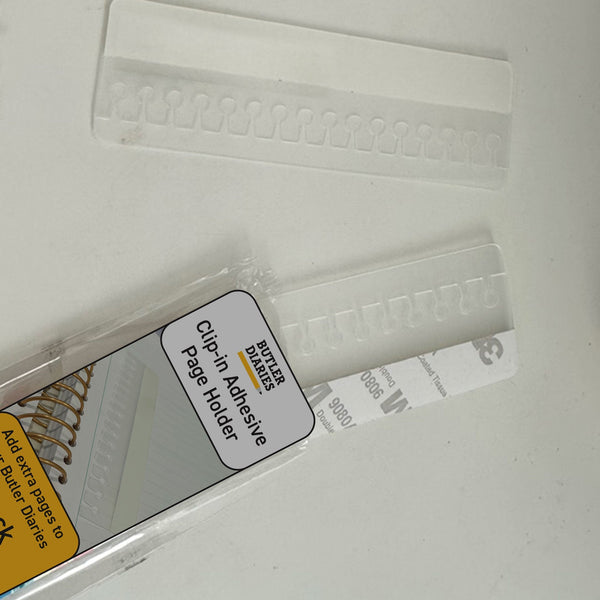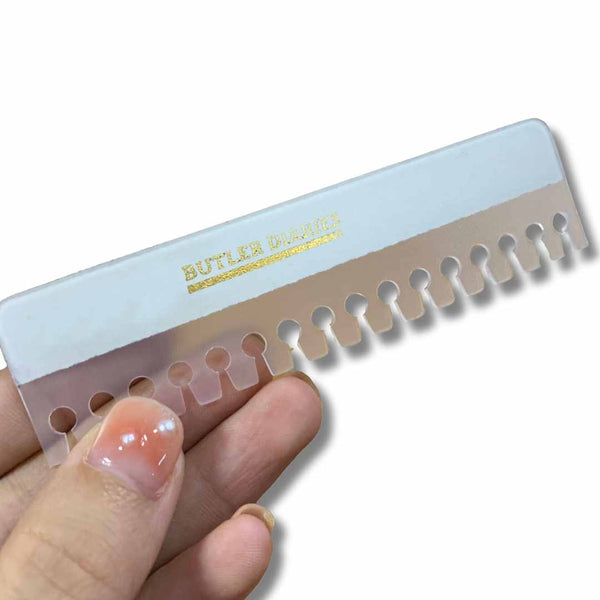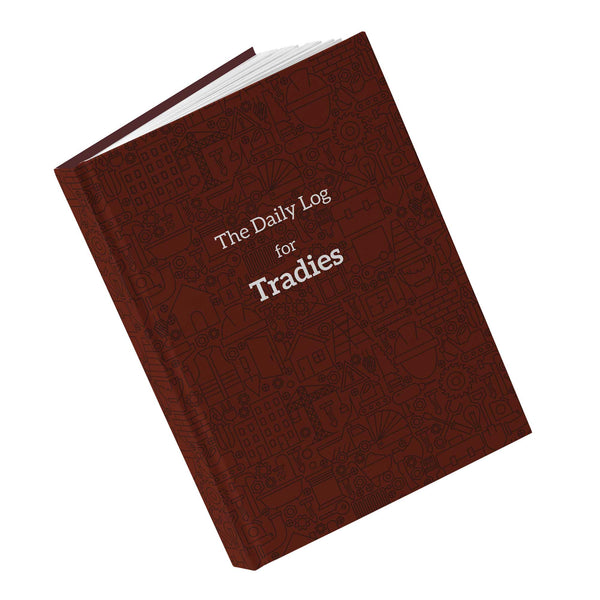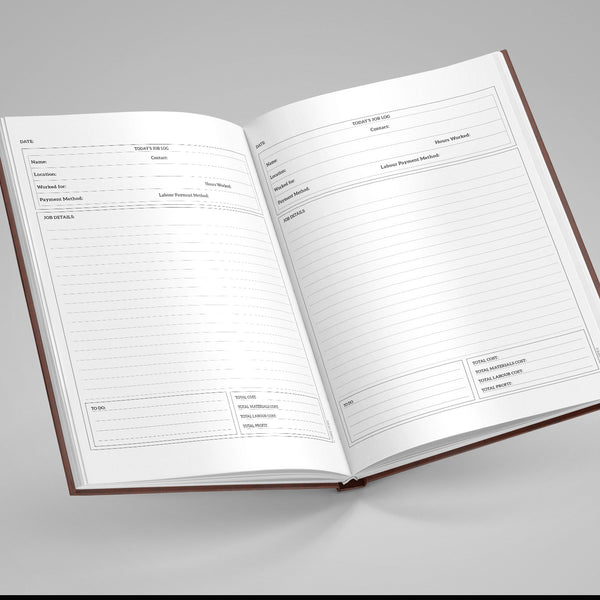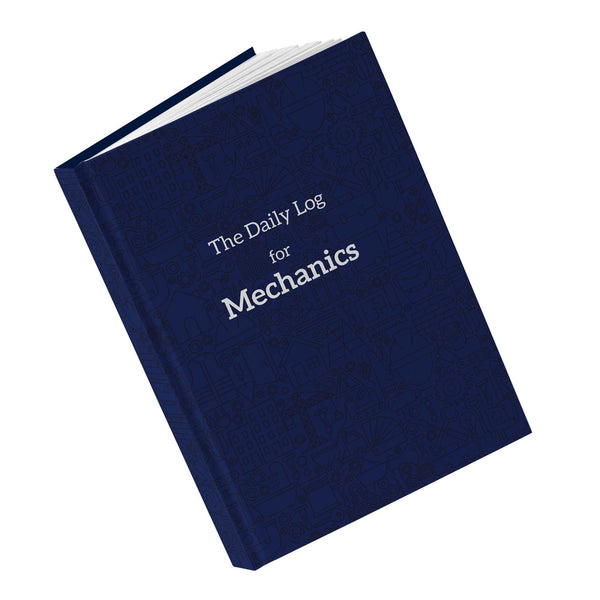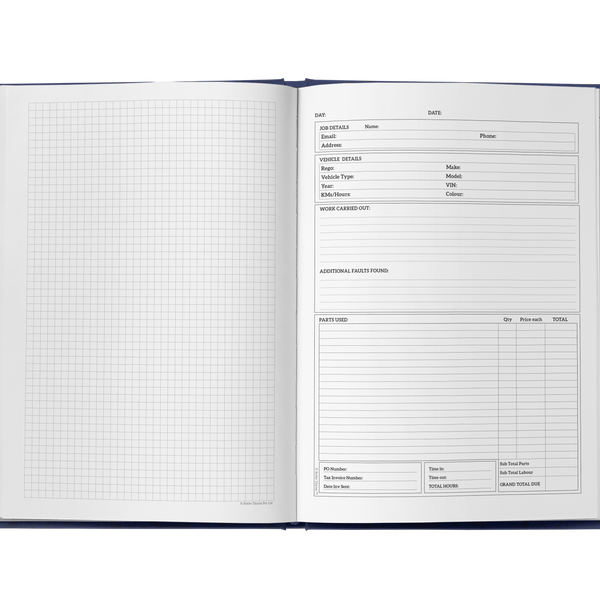Let's face it - there's never enough hours in the day. Between chasing materials, managing clients, fixing unexpected problems, and actually doing the work, it feels like you're constantly running behind.
But here's what's interesting: the construction industry desperately needs productivity improvement just to catch up with other leading industries. While that sounds depressing, it's actually opportunity knocking.
The tradies who figure out how to work smarter (not just harder) are the ones charging premium rates and finishing work on time while their competitors are still scrambling. With skilled tradies now commanding $75,000-$110,000+ annually, efficiency isn't just nice to have - it's what separates successful businesses from struggling ones.
These aren't theoretical productivity tips from someone who's never held a tool. These are real-world hacks that actually save time and reduce stress.
Planning: The Foundation That Changes Everything
Plan Your Day Like Your Profit Depends on It (Because It Does)
The problem: Most tradies start their day reacting to whatever screams loudest, then wonder why they're always behind.
The solution: Spend 10 minutes the night before mapping out tomorrow. Know which jobs you're doing, what materials you need, and what tools to take.
Smart planning strategies:
- Route your jobs geographically - don't zigzag across town
- Group similar tasks together to stay in the right mindset
- Build in buffer time for unexpected problems (they always happen)
- Plan material pickups for quiet times, not when suppliers are slammed
Choose your planning method: Whether you use digital scheduling apps or prefer hands-on planning with your Construction Diary, the key is consistency. Many successful tradies find they think and remember better when they can write things down and see their whole week laid out on paper.
Master the Art of Realistic Scheduling
The truth: Poor planning and communication often cause ripple effects that wreck productivity.
Time estimation reality:
- Add 20% to your estimates for unknown factors
- Factor in travel time, not just work time
- Account for material pickup and tool preparation
- Remember that first jobs of the day take longer (you're not warmed up yet)
Technology: Use What Actually Helps
Smart Tech vs. Tech for Tech's Sake
The reality: Apps like Tradify, ServiceM8, and Fergus are specifically built for tradespeople and can genuinely save time when used properly.
Technology that actually saves time:
- Job management apps: For quoting, invoicing, and client communication
- Measurement apps: Quick calculations and conversions on your phone
- Photo documentation: Before/after shots that protect you and impress clients
- GPS and traffic apps: Avoid getting stuck in traffic delays
What to avoid: Apps that require more time to set up than they save, overly complex systems that your team won't use, or anything that makes simple tasks complicated.
The Hybrid Approach That Works
Best of both worlds: Many efficient tradies use digital tools for invoicing and client communication, but stick with reliable methods like their Construction Diary for job coordination and communication tracking. Use whatever combination gets you the best results.
Tool and Material Organisation: Stop Wasting Time Hunting
The 5-Minute Tool Check That Saves Hours
The cost of chaos: The average tradie spends 30-45 minutes per day looking for tools or making trips back to the van. That's 2.5-4 hours per week of lost productivity.
Smart organisation systems:
- Designated spots for everything - tools go back in the same place every time
- Pre-packed tool kits for common jobs (no thinking required)
- Regular inventory checks to replace worn or missing items
- Quality tool storage that survives job site conditions
Material Management That Prevents Delays
The morning disaster: Nothing kills efficiency faster than realising you don't have the right materials halfway through a job.
Prevention strategies:
- Material lists prepared the night before (when your head's clear)
- Backup supplies for common failure points
- Good relationships with suppliers who'll deliver or hold materials
- Vehicle organisation that keeps materials clean and accessible
Track everything: Whether digitally or in your Daily Log for Tradies, keep records of what materials each job requires. This makes estimating future jobs much more accurate.
Communication: Get It Right the First Time
Client Communication That Prevents Problems
The efficiency killer: Effective communication can turn an uncoordinated group into a cohesive team, but poor communication destroys productivity.
Clear communication practices:
- Confirm job details in writing before starting
- Set realistic expectations about timelines upfront
- Regular updates on progress and any changes
- Document all conversations to avoid "I never said that" disputes
Use your preferred method: Whether you use digital communication tools or document conversations in your Construction Diary communication spaces, the key is having a reliable system that works for how you operate.
Team Coordination That Actually Works
For team leaders: Clear delegation and task assignment prevent people standing around wondering what to do next.
Efficient team practices:
- Brief morning meetings with clear daily objectives
- Assign specific tasks to specific people
- Regular check-ins without micromanaging
- Clear escalation process when problems arise

Systematic Approaches: Work Smarter, Not Harder
Create Standard Operating Procedures (That Actually Get Used)
The efficiency multiplier: When you have a proven way of doing common tasks, you don't waste mental energy deciding how to approach them each time.
SOPs worth creating:
- Standard material lists for common job types
- Step-by-step processes for routine installations
- Quality check procedures to prevent callbacks
- Safety protocols that become automatic
Keep them simple: Complex procedures that nobody follows are useless. Make them practical and easy to remember.
The Problem-First Mindset
Shift your thinking: When problems appear, think about solutions before anything else. Time is wasted worrying about problems instead of addressing them.
Proactive problem solving:
- Identify potential issues before they become emergencies
- Keep common problem-solving tools and materials on hand
- Develop relationships with suppliers who can help in urgent situations
- Learn from each problem to prevent similar issues in future
Delegation and Outsourcing: Focus on What Matters
Smart Delegation
The reality: Identifying tasks to offload to others can free up time for core work like construction and maintenance.
Tasks worth delegating:
- Administrative work (bookkeeping, invoicing, scheduling)
- Material procurement and delivery coordination
- Initial site cleanup and preparation
- Routine maintenance on tools and equipment
Track delegated tasks: Make sure your team documents their daily work progress, whether in apps or using your Daily Log for Tradies to maintain clear records of responsibilities and outcomes.
Outsourcing That Makes Sense
Smart outsourcing options:
- Specialised subcontractors for work outside your expertise
- Accounting and tax preparation
- Website maintenance and digital marketing
- Equipment servicing and repairs
Health and Energy: The Foundation of Efficiency
Physical and Mental Stamina
The connection: Your energy levels directly impact your efficiency, decision-making, and quality of work.
Energy management basics:
- Proper sleep (not just more coffee)
- Regular meals that sustain energy rather than causing crashes
- Physical fitness that supports the demands of trade work
- Mental breaks to prevent decision fatigue
Safety as Efficiency
The productivity link: Proper safety protocols actually improve efficiency by preventing injuries and rework.
Safety that saves time:
- Proper PPE prevents injuries that stop work
- Safe work practices prevent accidents that cause delays
- Regular safety training prevents costly mistakes
- Good safety culture attracts better workers
Continuous Learning and Adaptation
Skills That Multiply Efficiency
Smart learning investments: With Australia's construction industry needing a 30% workforce increase, skilled tradies have huge opportunities to command better rates.
High-impact skills:
- New tools and technologies that speed up common tasks
- Advanced techniques that improve quality and reduce callbacks
- Business skills that help you win better-paying jobs
- Digital literacy for modern job management
Stay Flexible but Focused
Adaptation strategies: While routines bring structure, you need flexibility to handle the unexpected.
Smart flexibility:
- Core routines that handle 80% of situations
- Backup plans for common disruptions
- Network of reliable contacts for emergency help
- Systems that work whether you're busy or quiet
Choose Your Efficiency System
The most efficient tradies aren't necessarily using the fanciest technology - they're using systems that match how they actually work and think.
For comprehensive planning and coordination: Your Construction Diary is designed for tradies who plan and coordinate better with hands-on methods. If you're someone who remembers tasks better when you write them down or prefers seeing your whole week and job details laid out visually, this is your efficiency foundation.
For detailed progress tracking: The Daily Log for Tradies works perfectly for capturing what's working, what isn't, and lessons learned each day. Many efficient tradies find they process their day better and identify improvement opportunities when they can reflect through writing.
For professional client interactions: A Leather Notepad and Pen ensures you capture important details during client meetings and planning sessions without fumbling with devices or missing crucial information.
The Bottom Line
Efficiency isn't about working faster - it's about eliminating the stuff that wastes time so you can focus on the work that matters.
Start with the basics:
- Plan properly: 10 minutes of planning saves 30 minutes of confusion
- Organise systematically: Everything has a place, and you know where it is
- Communicate clearly: Prevent problems instead of fixing them
- Use helpful technology: Tools that genuinely save time, not just look fancy
Remember: The goal isn't to fill every minute with work - it's to get the work done efficiently so you have time for the things that matter outside of work.
Your Construction Diary isn't just for tracking jobs - it's your efficiency command centre for planning better days, coordinating smoother jobs, and building the kind of organised, professional business that clients recommend and competitors respect.
Efficiency isn't complicated - it just requires being intentional about how you work instead of just reacting to whatever happens next.




